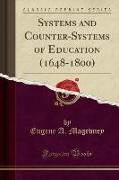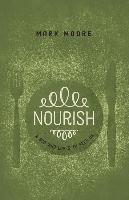- Start
- Systems and Counter-Systems of Education (1648-1800) (Classic Reprint)
Systems and Counter-Systems of Education (1648-1800) (Classic Reprint)
Angebote / Angebote:
Excerpt from Systems and Counter-Systems of Education (1648-1800)Hile in one sense the treaty of Westphalia (1648) inaugur ated a peace, in another it did but transfer the con¿ict between Prot estantism and Catholicity from the battle-field to the class-room. No sooner was that treaty proclaimed than the work of education, so rudely and so often interrupted, was actively resumed, and the development 'of edu cational systems, which had already set in, was pushed forward on both sides with astonishing rapidity and resolution. The consideration of these systems as they come to the surface, each expressive of its own peculiar phase of thought and ideas of progress, furnishes us with the best commentary upon the educational status of the times. With Protestantism it was a strong endeavor to perpetuate, by lay ing siege to youthful minds and hearts, its heterogeneous theological beliefswith the Church, a supreme effort to recover what she had lost and to strengthen and purify what she still retained.As we view the contestants, ar rayed one against the other, their respective educational policies suggest a contrast fraught with the profound est significance to the true philosopher of history. In the one, the non-cath olic, we discern the spirit of humanis tic skepticism busily and variously at work paving the way. By slow degrees, for the infidelity of the French Revo lution, in which it culminated and by which it was eventually supplanted. The repudiation of scholasticism by the Reformers and later Humanists had given an undue prominence to purely inductive methods. To both they came as valuable substitutes for what they considered the meaningless vagaries of the schoolmen. Yet, for all this, it must be admitted that they were neither new nor untried. Aristotle, the early Christian philosophers, and a whole train of mediaeval writers, had been more or less familiar with them long before the Novum Organum of Francis Bacon had made its appear ance. Bacon, it is true, emphasized and popularized them. He entered, more than any of his predecessors haddone, into the systematization of sci entific details, and gave an impulse to the spirit of physical inquiry which has since revolutionized the world. Nevertheless, he was not their discov erer - only their chief formulator and propagator. It was not long before his over-zealous disciples, pushing their advocacy of the analytic method far beyond what he contemplated, re jected as altogether useless the syn thetic process, from which, in any true system of philosophy, it is necessarily inseparable. The effect was inevitable. The study of the outer world, the concentration of human intelligence and energy upon mere objective phe homena, the consequent darkening and gradual elimination of the spirit ual from the horizon of scientific spec ulation - all contributed to lead up to the gospel of materialism, which took such an easy hold upon minds already adrift on a sea of contradictions and errors, and has not even yet wholly run its destructive course in the school room.About the PublisherForgotten Books publishes hundreds of thousands of rare and classic books. Find more at www.forgottenbooks.comThis book is a reproduction of an important historical work. Forgotten Books uses state-of-the-art technology to digitally reconstruct the work, preserving the original format whilst repairing imperfections present in the aged copy. In rare cases, an imperfection in the original, such as a blemish or missing page, may be replicated in our edition. We do, however, repair the vast majority of imperfections successfully, any imperfections that remain are intentionally left to preserve the state of such historical works.
Folgt in ca. 10 Arbeitstagen




